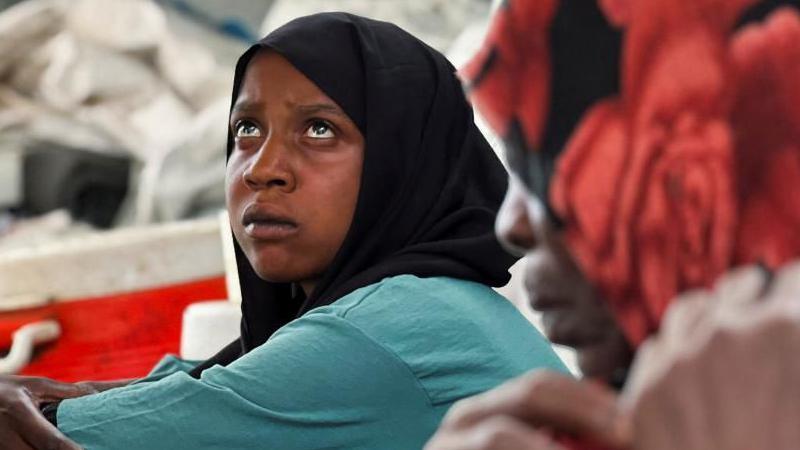Sudan rejects UN call for peace force to protect civilians

The conflict has caused a massive humanitarian crisis
- Published
Sudan's military-led government has rejected a call by a UN fact-finding mission for the deployment of an international force to protect civilians from the country’s ongoing civil war.
Sudan’s warring parties had committed "harrowing" human rights violations against civilians, the UN mission reported.
Thousands of people have been killed and nearly eight million displaced since conflict broke out in April 2023 between the army and the paramilitary Rapid Support Forces (RSF).
The two had jointly staged a coup, but then fell-out, plunging Sudan into a civil war.
“Given the failure of the warring parties to spare civilians, it is imperative that an independent and impartial force with a mandate to safeguard civilians be deployed without delay,” the UN mission’s lead, Chande Othman, said.
The fact-finding mission also called for an arms embargo to be imposed on both sides involved in the conflict.
It reported its findings after obtaining first-hand testimony from 182 survivors, family members and eyewitnesses.
The United Arab Emirates (UAE) is accused of supporting the RSF with money and guns - which it denies - while Saudi Arabia is said to have close ties with the Sudanese government.
Sudan's foreign ministry said the government rejected the recommendations of the fact-finding mission in their "entirety".
It described the UN Human Rights Council as "a political and illegal body", and said the mission's recommendations were "a flagrant violation of their mandate".
The RSF has not yet commented on the proposal.
Meanwhile, the head of the World Health Organization (WHO) called on the "world to wake up and help Sudan out of the nightmare it is living through", AFP news agency reported.
Dr Tedros Adhanom Ghebreyesus was speaking during a visit to Port Sudan - the main hub for aid agencies and new headquarters of the government, after it was driven out of the capital, Khartoum, by the RSF.
"The scale of the emergency is shocking, as is the insufficient action being taken to curtail the conflict and respond to the suffering it is causing," Dr Tedros was quoted as saying.
In August, a UN-backed committee of experts declared a famine at a camp housing about 500,000 displaced people near the besieged city of el-Fasher in Darfur, one of the regions worst-affected by the conflict.
Various mediation efforts, brokered by Saudi Arabia and the US, have failed to end the conflict.
More BBC stories on Sudan conflict:

Go to BBCAfrica.com, external for more news from the African continent.
Follow us on Twitter @BBCAfrica, external, on Facebook at BBC Africa, external or on Instagram at bbcafrica, external